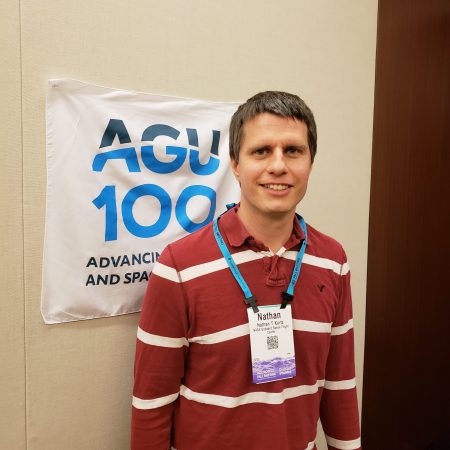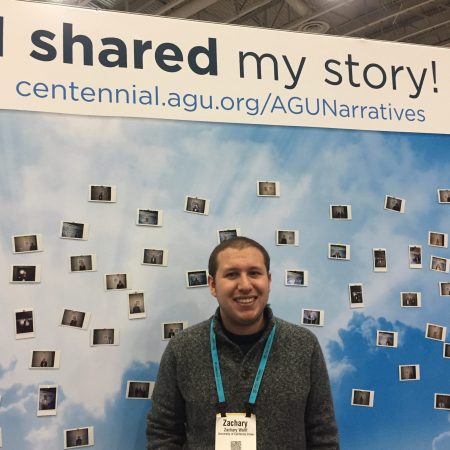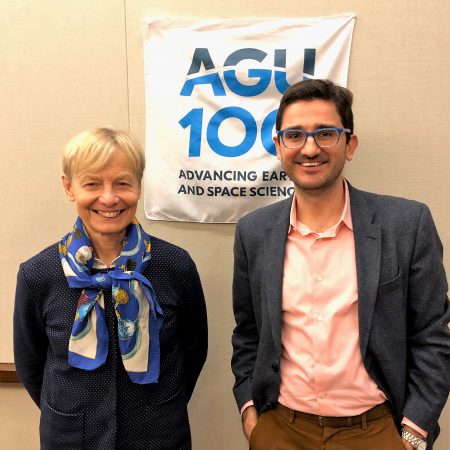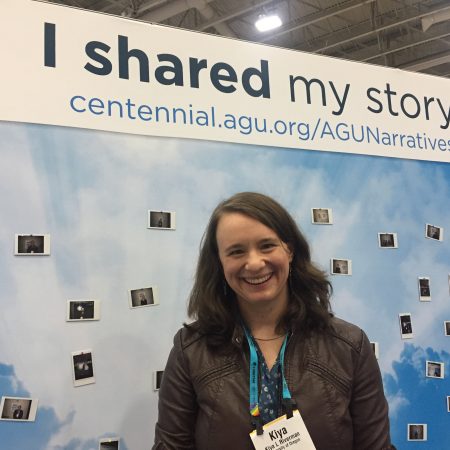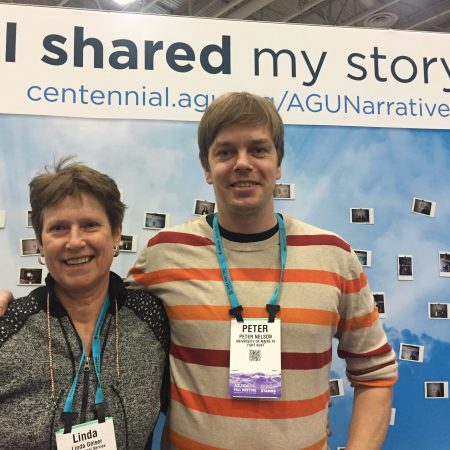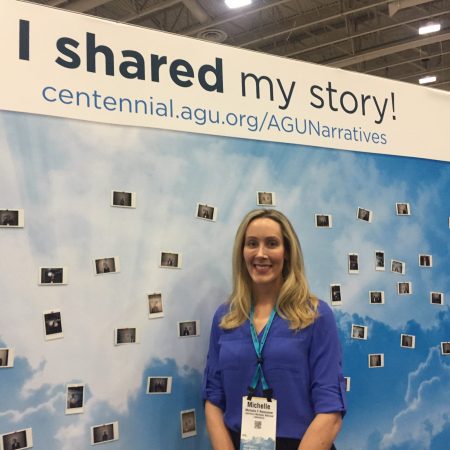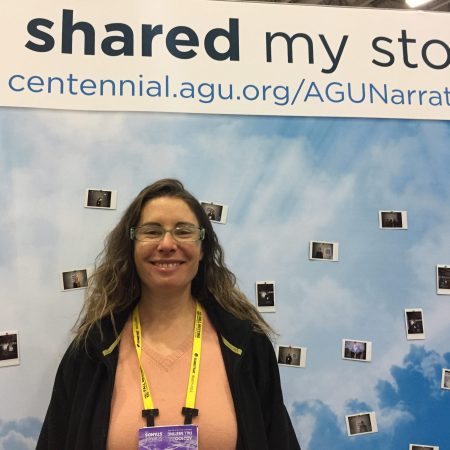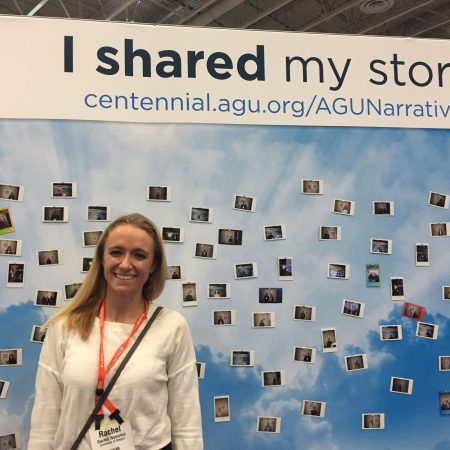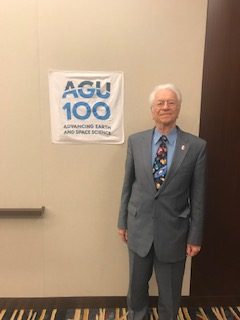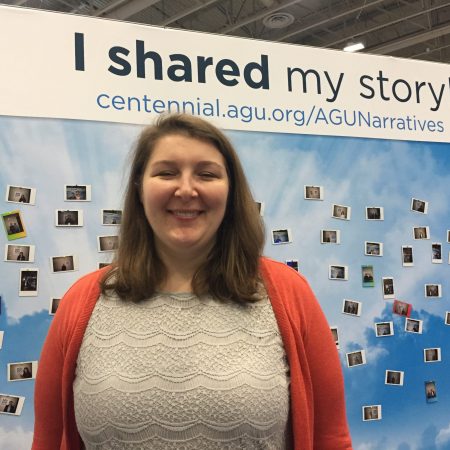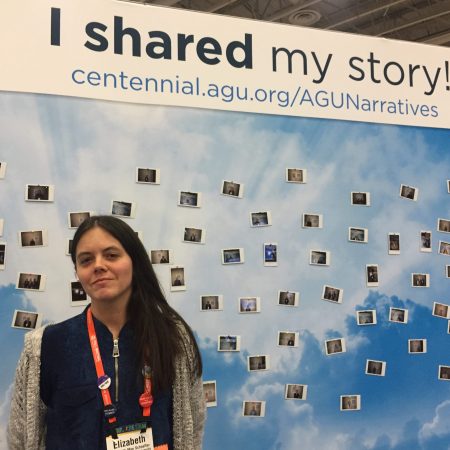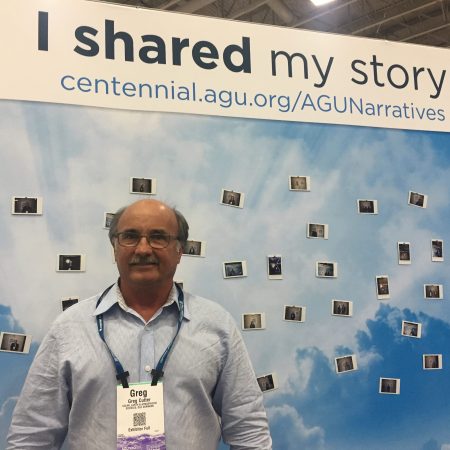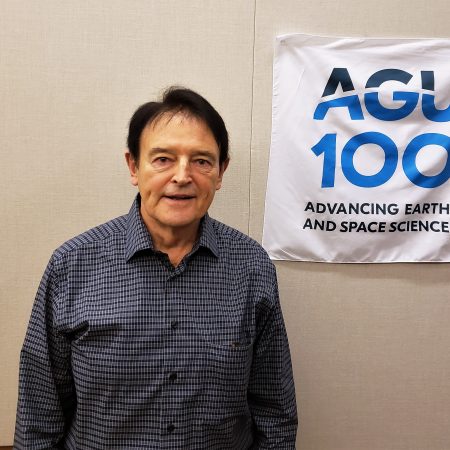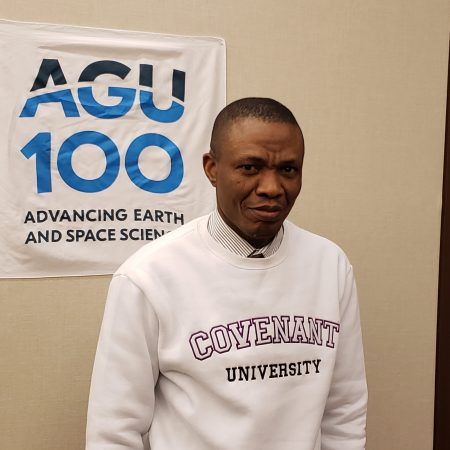Refine
Date Range Clear
Recorded by Clear
Keywords Clear
Partnerships Clear
- No matching terms.
Organizations Clear
- American Geophysical Union 4
- National Aeronautics and Space Administration 1
- The American Geophysical Union 1
Places Clear
Languages Clear
- No matching terms.
Initiatives Clear
- No matching terms.
The potential downside of a career in always seeking discoveries is that it may stunt the development of your confidence. Even as someone who walked into NASA, living the dream in his mind, Nathan Kurtz experiences that downside, politely calling...
Zachary Wolff talks about how his path to studying and creating models as a graduate student at UC Irvine was not straightforward: he first considered medicine and meteorology before working on a CICE radiation study and discovering his interest. While...
For Ved Lekic, the opportunity to interview his mentor, Barbara Romanowicz, was a little daunting, so he brought along some questions. Once the conversation turns and Ved has a chance to answer some questions as well, we meet a very...
Glenn Orton, a senior research scientist at the Jet Propulsion Laboratory, discusses his career exploring the outer Solar System that started with the Pioneer 10 and 11 missions, and extended forward to Cassini and more recently Juno. Interested in space...
Kiya Riverman ended up studying glaciers because, on a field work trip, she was one of the few who could fit the ice cave in the glacier. She recalls, “you're surrounded by glaciers and then sometimes you're underneath glaciers. And...
Linda Geiser and Peter Nelson tell their own stories and reflect on the impact they’ve had on each other lives. They’re both currently with the US Forest Service but first met when Linda hired Peter after he finished university to...
Michelle Newcomer is now a research scientist at Lawrence Berkeley National Lab but her first degree was in French and Sociology. She talks here about the fear that comes with changing careers, taking risks, and pursuing the path that you...
Adeena Teres is a high school science teacher in Florida, although she tried a few different careers before following her passion for teaching. As a teacher, there are always opportunities to inspire students either into science careers or towards other...
Emily Schaller, project manager at NASA's National Suborbital Research Center at Ames, discusses her Ph.D. work studying the clouds on Titan and her work as a science and education. She recalled how as a young child, she would study illustrations...
Rachel Hampton ended up in the geosciences because she couldn’t find the art history class she was looking for. From asking a TA if she could join him on fieldwork to doing her senior thesis on volcanoes without a professor...
Tom Krimigis works at the Johns Hopkins University Applied Physics Lab, and was previously the principal investigator for the Voyager I and Voyager II missions. A student of Van Allen, Tom built detectors to search for Van Allen belts on...
Erica Bickford’s advice to early career scientists or students is to look outside academia and explore all the potential career options available to scientists. She is particularly aware of the importance of science in daily life and in the policy...
Elizabeth Schaeffer hasn’t followed the most straight-forward route into the geosciences but that’s allowed her to discover the field she most wants to study. She’s a non-traditional undergraduate studying applied geology and talks about recent internships she’s done that have...
Having an idol is important in science so you can see yourself doing something similar. Gregory Cutter met his idol, Jacques Cousteau, when he was an assistant professor at Old Dominion University. As an oceanography professor, he worked with different...
Who says work ends when you retire? For Tom Dunne, University of California Santa Barbara, the work is still finding him. Instead of heading off to the Amazon to find discovery, these days he need only look out his window...
Philips Aizebeokhai talks about the path his career has taken, turns and all. Although he started out working in the oil and gas industry, he found himself drawn to academia and the chance to be excited every day through his...
